GENERAL DATA
Plant parts: Seeds, Leaves
Cultivation mode: Wild Collection
In manufacturing:
– Drink: alcoholic, stimulant
– Medicines: pain-killers (whole plant)
– Medicines: sedatives, etc. (whole plant)
– Medicines: arthritis, rheumatism, etc.
– Phytochemistry: miscellaneously poisonous or repellent (stem root, seed)
– Phytochemistry: alkaloids (plant (cattle))
– Agri-horticulture: fodder (stem, root, seed)
– Products: dyes, stains, inks, tattoos and mordants (whole plant, seed)
– Social: religion, superstitions, magic.Medicines: generally healing (whole plant)
In food: Not used in food
🌿 Industries That Use Wild Rue Seeds (Peganum harmala L.)
Wild Rue seeds are small, dark brown to black and extremely potent, known for their high content of harmala alkaloids like harmine, harmaline, and tetrahydroharmine (THH). These seeds are powerful MAO inhibitors (MAOIs) and have been used for millennia in spiritual, medicinal, and industrial contexts.
1. Pharmaceutical & Ethnobotanical Research
Peganum harmala is under intense scientific study for its neuroactive and psychoactive alkaloids, which interact with neurotransmitters and have MAO-inhibiting effects.
Applications:
-
Studied for potential in neurodegenerative disease management
-
Researched for use in psychedelic-assisted psychotherapy (as a potentiator)
-
Investigated for antitumor, antiviral, and antimicrobial properties
-
Used as a natural source of β-carboline alkaloids
✅ Active constituents: Harmine, harmaline, vasicine, harmalol
2. Traditional Medicine & Herbal Remedies
Widely used in Iranian, Middle Eastern, Central Asian, and North African folk medicine for its antiparasitic, antimicrobial, analgesic, and calming properties.
Applications:
-
Burned as fumigation incense (Espand) to ward off evil eye and disinfect spaces
-
Taken in small doses for nerve pain, muscle spasm, digestive disorders, and fever
-
Used topically or internally for rheumatism, headache, and uterine issues
-
Sometimes employed in Ayurvedic and Unani tonics
✅ Highly potent—toxic in high doses, must be handled with expertise
3. Spiritual, Ritual, & Cultural Use
Wild Rue seeds have a rich history of ritual and spiritual use, particularly in Iranian, Berber, Arab, and Turkic cultures.
Applications:
-
Burned over charcoal in homes or ceremonies to ward off negative energy
-
Used in postpartum purification and spiritual protection rituals
-
Integral to Nowruz (Persian New Year) traditions as a purifying incense
-
Sometimes used as ethnobotanical admixtures in shamanic contexts
✅ Releases strong-smelling smoke believed to neutralize harmful forces
4. Natural Dye Industry
The seeds of Peganum harmala are an ancient source of red dye (called “Turkish red” or “harmal red”).
Applications:
-
Used for dyeing wool, silk, and leather
-
Historically important in Persian carpets, ceremonial textiles, and tribal garments
✅ Contains harmine-type alkaloids that bind well to natural fibers
5. Pest Control & Agricultural Use
Due to its strong alkaloids, Wild Rue seeds are studied for eco-friendly pest control and antifungal use in agriculture.
Applications:
-
Used as natural pesticide for grain storage
-
Tested for antimicrobial seed treatments
-
May serve as fungicide or insect repellent in organic farming
✅ Promising in sustainable, non-synthetic agrochemical development
6. Export & Ethnic Markets
Wild Rue seeds are traded in Middle Eastern, North African, and Central Asian herb markets—sold for medicinal, ritual, and incense purposes.
Applications:
-
Sold whole in ethnic grocery stores, bazaar markets, and herbal shops
-
Exported from Iran and Afghanistan to Europe, India, and the diaspora markets
-
Used in ceremonial blends, incense packets, and spiritual kits
✅ Often labeled as “Espand”, “Harmal”, or “Syrian Rue”
✅ Summary of Key Applications
| Industry | Common Uses |
|---|---|
| Pharmaceutical & Research | MAOI alkaloid studies, neuropharmacology, antimicrobial research |
| Traditional Medicine | Antiparasitic, nerve tonic, analgesic, menstrual regulator |
| Spiritual & Ritual Use | Smoke fumigation, protection rituals, Nowruz ceremonies |
| Natural Dye | Red dye for wool, silk, textiles, carpets |
| Agricultural | Natural pesticide, grain preservative, antifungal treatment |
| Ethnic & Export Markets | Bulk seeds for incense, healing rituals, cultural traditions |
🌟 Key Features of Wild Rue Seeds
-
Rich in β-carboline alkaloids: harmine, harmaline, THH
-
Traditionally used as smoke fumigant for protection
-
Acts as a potent MAOI, requires controlled use in medicine
-
Source of natural red dye for textiles
-
Integral to Persian and Central Asian cultural heritage
HARVEST CALENDAR
Feb
Mar
Apr
May
Jun
Jul
Aug
Sep
Oct
Nov
Dec
To order Syrian rue, please contact us.
About Peganum Harmala
Wild Rue is the seed of a plant whose plant height reaches fifty centimeters. The leaves of Peganum harmala are narrow, short, scattered, cut, pointed and almost like deer horns. Its flowers have five oval petals, white, elongated, separate and fragrant. The seeds of Peganum harmala plant are triangular in shape, dark brown and bitter and have a spicy aroma. But when it places on fire, it creates a fragrant smoke.
The seed of Peganum harmala is placed in a small pod the size of a pea, with three swollen parts that have three sub-grooves. But when the sheath dries, the grooves do not split apart, instead, it cracks and splits between the two sub-grooves. The pod color of this plant is green at first. But after fully ripening, it becomes light yellow.
Peganum Harmala Chemical Constituents
It has four alkaloids called Harmine, Harmaline, Harmalol and Peganine or Vasicine.
Syrian Rue Temperament
Second degree of hot and dry.
2. Wash 23 grams of Syrian rue in cold water and dry it in the shade. Do this six times and 7 times wash it with warm water and dry it in the shade, then mix one sixth of it with sweet Almond oil every morning and eat it before breakfast. Treats frequent urination.
3. Every morning before breakfast mix a teaspoon of Wild rue with some Flixweed (Descurainia sophia) and put it in your mouth and eat it without chewing it. Cures urinary incontinence.
4. Swallow 12 of Wild rue every hour without putting a tooth on it. Diarrhea from heatstroke stops.
5. Boil 32 grams of African rue in a glass of water, then strain the water and mix it with honey or Sesame oil and eat that amount every day for a month. Treats asthma or shortness of breath.
6. Soak a teaspoon of Wild rue every day, then take it out and eat it. It purifies the blood.
7. Pulverize 30 grams of Syrian rue and boil it with 120 grams of water, then strain the water and mix it with 90 grams of honey and 60 grams of Sesame oil and drink it. It causes severe vomiting, cleanses the chest and upper body of viscous moisture, and is also useful for moist cough.
13. Boil some of it in Horseradish juice and Olive oil until the water runs out and the oil remains, and apply a few drops of that oil in the ear. It is useful for hearing impairment, deafness and resonance in the ear.
14. Its fumigation is beneficial for relieving toothache.
15. Mix Harmal seed with Berries seeds or Oyster, then pulverize softly and rub on the teeth. It will remove teeth yellowing.
16. Boil it until a few drops of water remain and keep it. When bleeding from the nose, apply it to the nose with a dropper. It stops the nose bleeding.
Syrian Rue Side Effects
It is harmful to hot temperament people and causes headaches, vomiting and nausea. Its modifier is Sour fruit paste, Sekanjebin and other sour fruits.
Wild Rue Leaves
Drink its brewed tea. It is emmenagogue, increases milk secretion, aborts the fetus, is effective in enhancing sexual power, and also treats rheumatism.
To order Wild Rue seeds, please contact us.

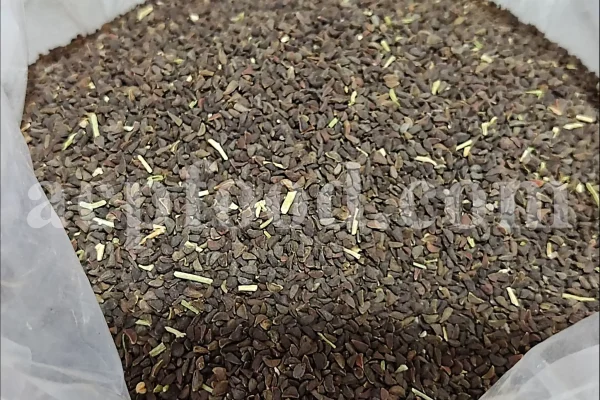




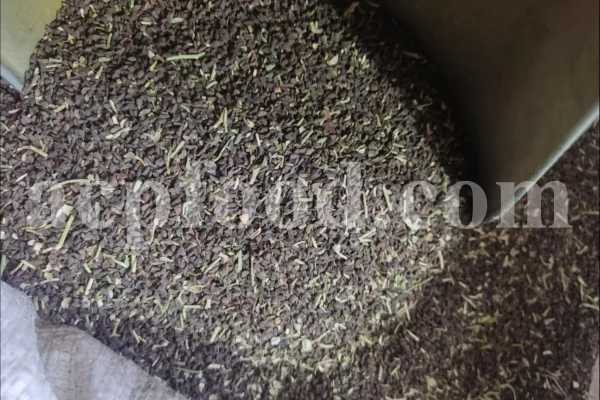








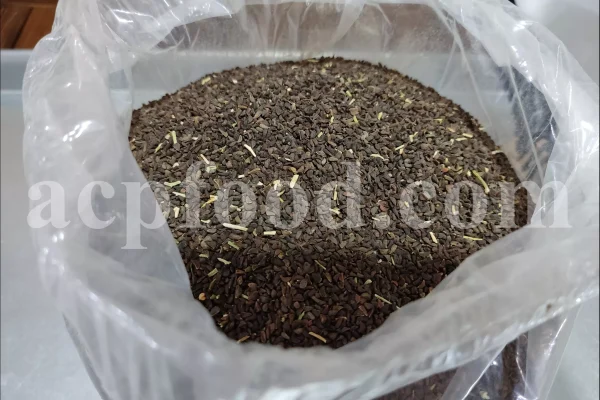





















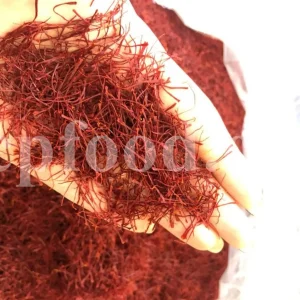

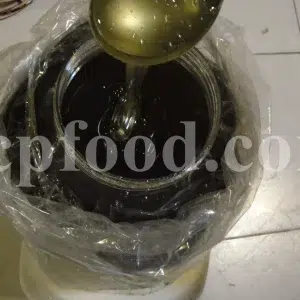
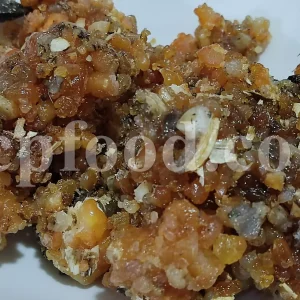
Reviews
There are no reviews yet.